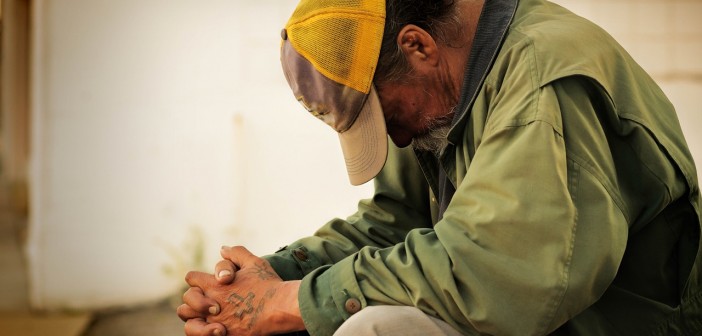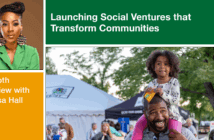When Jesus walked on earth, he taught about the kingdom while he healed the sick, restored sight to the blind, and fed the hungry. Today, we are called to meet the physical as well as the spiritual needs of people — all people — in our communities. In fact, hurting and hungry people won’t believe we care if they only hear our words but don’t see our actions to provide tangible help for them.
Many of us drive by hurting, hungry, and homeless people every day without giving them a second thought, but when God touches our hearts and motivates us to care for “the least of these,” we want to get involved. In fact, we have to get involved because we have a sense of urgency to help them. But we shouldn’t rush into this ministry. We need to do our homework, clarify our goals, and find good resources so that our efforts will be successful.
To have a strong, vibrant ministry to the homeless, incorporate these five “Cs”:
Common Sense. The streets are a tough place with real risks. Many street people are courteous and kind, but some are addicts who consider robbing people because they desperately need money for their next hit; some are unstable because they suffer from chronic mental illnesses; and some are hiding from the police or parole officers because they have broken the law. Be aware of your surroundings and go in teams, with a good blend of men and women to be sure women aren’t unnecessarily vulnerable. Early in our work with homeless people around St. John’s, some of our volunteers were robbed so we hired security guards for our homeless ministry.
Collaboration. Local government and non-profit agencies offer a wide variety of resources for hungry and homeless people, such as mental health services, clothing, food, and legal assistance. Discover the help that’s available, and team with agencies that can assist your efforts. These agencies have been providing assistance to the disadvantaged in your community for years. Enlist them to train your volunteers and ask for their advice as you clarify your strategy for your ministry.
Commitment. People on the street may look like they don’t have a clue, but they can tell if people who come to help them genuinely care, or if they are on a one-time social experiment to earn a merit badge. For this reason, be sure that the leadership of the church “own” this ministry and give plenty of emotional, spiritual, and tangible support to those who are helping the homeless. Blending spiritual care with physical assistance is a powerful ministry, but most homeless people trust others very reluctantly. It will take time and tenacity to earn their trust.
Consistency. Look for people, agencies, and corporate partners who will join you for the long haul in this ministry. People on the street need to see familiar faces on a regular basis so they can believe that you truly care about them. As they see you and your team as consistent and reliable, you’ll earn their respect. At that point, they might listen to your message of hope and forgiveness, and they might take steps based on your loving advice.
Contributions. Donations to this ministry come in all shapes, in all sizes, and from all sources. Our church’s confirmation classes collect socks and warm caps each winter to give to homeless people. Others give toys, clothes, blankets, and money to meet needs of street people. St. John’s has a corporate partner whose employees give their time one day each month to feed the homeless. Look for additional sources of help from other non-profits and businesses in your community. Make the need known, and ask people to be generous.
Beginning and developing a ministry to homeless people on the street is rewarding, but it can also be exhausting. Set clear goals and establish a workable strategy. Ask plenty of questions, build a great team, and look for resources to help you. If your heart is broken because you see the needs of men, women, boys, and girls on the street, enlist the leaders of your church to pray and help you communicate God’s love in a tangible way to those who desperately need it. As God leads you to build your team and find resources, take action to touch the lives of “the least of these.” It will be one of the most fulfilling things you’ve ever done.
This article is adapted from Rudy’s book, Touch: Pressing Against the Wounds of a Broken World, (Thomas Nelson, 2007) and used with his permission. It can be purchased at Amazon or Cokesbury.






